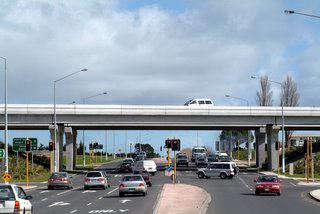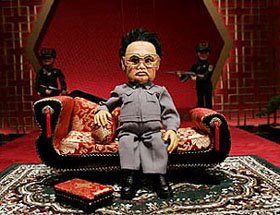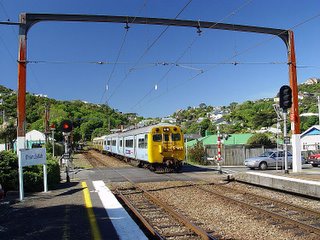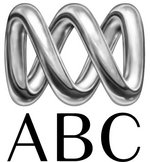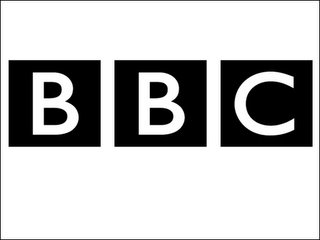.
AJ Chesswas challenged me a couple of weeks ago to give a "philosophical and moral justification of libertarianism" after I blogged about his views on sex, morality and the state (he has since decided to stop blogging and the vigorous debates on his blog have been removed by him).
.
So here it is, after some attempt at writing a summary, I decided to be as succinct as I could be, while still walking through it step by step. The briefest version is:
.
- existence exists - human beings have consciousness to perceive reality - human beings are living creatures and the sustenance of life is fundamental to anything else they do - in order to sustain life human beings must apply reason - in order to apply reason they must be protected from the initiation of force against their body and property, and have the freedom to think and act according to reason - and the highest reflection of life is the pursuit of happiness - as such, government should exist to protect people's bodies, property and freedom from the use of force by others, so they can sustain life and enjoy it. *phew*
.
The longer version is:
.
The libertarian position on government, is that government must exist in order to ensure that the four fundamental rights of humans are protected. These rights are:
.
- life;
- liberty;
- property; and
- the pursuit of happiness.
.
Government has a monopoly of legitimate violence to protect those rights, because individuals have those rights and have created government to serve them. The only action that can erode those rights is the use of force or fraud, force can end life, can restrain your freedom by prohibiting or compelling you, can take or destroy your property and can, as a result of losing the other rights, interfere with your happiness. Government exists to defend you against other human beings interfering with those rights. Your personal sphere is where all your rights exist, and your interaction with others is done on a voluntary basis, where rights are only important when the principle of voluntarism is abridged, because they PROTECT it.
.
Why those rights? Why are there not other rights and why are these “rights” at all? The answer is simple – because they are absolutely necessary preconditions for life itself and arise from the facts of life.
.
You may think that the “right to life” is all you need. However, the right to life per se, is quite fundamental and basic. It is your right not to be killed – but your right to not have force inflicted upon you although absolutely necessary, is insufficient in itself. Without this right, human beings live in anarchy and in need to be constantly vigilant against attack, which limits their potential to do anything beyond mere survival. This is, fundamentally, the right to deny others to violate your body, except by your choice (in which case it is not violation).
.
You also need a right to “property” (I’ll come to liberty in a moment). Property is the fruit of what you produce, by applying your mind to the world around you. Whether you invent, discover or undertake actions that trade value for value, you gain property – such as food, tools, clothing, shelter. Without such property, you are unable to sustain life, because you need food, shelter and warmth – if you had no such right, others could steal and occupy your property, denying you the basics of survival. Having a right to property enables you to not only survive, but produce a surplus, and trade – enhancing your life. This is control over what you produce or earn (whether by work or as a gift, from a relationship). It is the right to deny others the possession or control of your property, except by your choice.
.
You need “liberty” because in order to live, act and pursue property, you need the freedom to make your own decisions and act on them. This means not being compelled to act in ways that are contrary to your mind, or being prohibited from doing so. Liberty is freedom to be creative, to experiment, to explore and to make decisions surrounding your life. Without this, someone else is making your decisions and that person may not be motivated to protect your life or property. More importantly, it cannot be assumed, except in the transitional period of childhood (when reasoning matures) or severe cases of mental injury or disease, that one adult knows best how to respond to the environment for another. Why? If you assume a right to life and property, that means control over that life and property – the control over another’s life and property is the relationship of a master and slave. Regardless of whether or not the person wishing to inhibit liberty has good intentions regarding the life of the other person, denying that person the liberty to choose is abandoning the brain of that person. What may to one person be a destructive and negative action by another towards himself, may, to that other, be the pursuit of a rational value – for example, a person may wish to protect someone inventing a flying machine, because it could be damaging, but the person risking their life with such an invention is pursuing life, through valuing discovery and science. Similarly, it would be inappropriate for the person inventing to compel others to help, because others are pursuing different values - that are life affirming.
.
So what about a man doing something “so clearly harmful” to himself. Is there not an obligation to act to protect him? No, there is no obligation. There is the freedom to advise, and attempt to convince – but to use force against his body or property assumes that, given all of the available facts, you know better in the pursuit of that man’s goals. Perhaps your goals for him are better. So why not? Firstly, you may not have all of the available facts, in which case you would be violating him. Note that you will never always be in a better position than someone else to make those decisions, and if you are in error, you have not only violated his body and/or property, but have made or prohibited him acting in a way that is consistent with his values – something you yourself would personally resist. Secondly, if you do, it is presumably because you have better values or better pursue his values .
.
- life;
- liberty;
- property; and
- the pursuit of happiness.
.
Government has a monopoly of legitimate violence to protect those rights, because individuals have those rights and have created government to serve them. The only action that can erode those rights is the use of force or fraud, force can end life, can restrain your freedom by prohibiting or compelling you, can take or destroy your property and can, as a result of losing the other rights, interfere with your happiness. Government exists to defend you against other human beings interfering with those rights. Your personal sphere is where all your rights exist, and your interaction with others is done on a voluntary basis, where rights are only important when the principle of voluntarism is abridged, because they PROTECT it.
.
Why those rights? Why are there not other rights and why are these “rights” at all? The answer is simple – because they are absolutely necessary preconditions for life itself and arise from the facts of life.
.
You may think that the “right to life” is all you need. However, the right to life per se, is quite fundamental and basic. It is your right not to be killed – but your right to not have force inflicted upon you although absolutely necessary, is insufficient in itself. Without this right, human beings live in anarchy and in need to be constantly vigilant against attack, which limits their potential to do anything beyond mere survival. This is, fundamentally, the right to deny others to violate your body, except by your choice (in which case it is not violation).
.
You also need a right to “property” (I’ll come to liberty in a moment). Property is the fruit of what you produce, by applying your mind to the world around you. Whether you invent, discover or undertake actions that trade value for value, you gain property – such as food, tools, clothing, shelter. Without such property, you are unable to sustain life, because you need food, shelter and warmth – if you had no such right, others could steal and occupy your property, denying you the basics of survival. Having a right to property enables you to not only survive, but produce a surplus, and trade – enhancing your life. This is control over what you produce or earn (whether by work or as a gift, from a relationship). It is the right to deny others the possession or control of your property, except by your choice.
.
You need “liberty” because in order to live, act and pursue property, you need the freedom to make your own decisions and act on them. This means not being compelled to act in ways that are contrary to your mind, or being prohibited from doing so. Liberty is freedom to be creative, to experiment, to explore and to make decisions surrounding your life. Without this, someone else is making your decisions and that person may not be motivated to protect your life or property. More importantly, it cannot be assumed, except in the transitional period of childhood (when reasoning matures) or severe cases of mental injury or disease, that one adult knows best how to respond to the environment for another. Why? If you assume a right to life and property, that means control over that life and property – the control over another’s life and property is the relationship of a master and slave. Regardless of whether or not the person wishing to inhibit liberty has good intentions regarding the life of the other person, denying that person the liberty to choose is abandoning the brain of that person. What may to one person be a destructive and negative action by another towards himself, may, to that other, be the pursuit of a rational value – for example, a person may wish to protect someone inventing a flying machine, because it could be damaging, but the person risking their life with such an invention is pursuing life, through valuing discovery and science. Similarly, it would be inappropriate for the person inventing to compel others to help, because others are pursuing different values - that are life affirming.
.
So what about a man doing something “so clearly harmful” to himself. Is there not an obligation to act to protect him? No, there is no obligation. There is the freedom to advise, and attempt to convince – but to use force against his body or property assumes that, given all of the available facts, you know better in the pursuit of that man’s goals. Perhaps your goals for him are better. So why not? Firstly, you may not have all of the available facts, in which case you would be violating him. Note that you will never always be in a better position than someone else to make those decisions, and if you are in error, you have not only violated his body and/or property, but have made or prohibited him acting in a way that is consistent with his values – something you yourself would personally resist. Secondly, if you do, it is presumably because you have better values or better pursue his values .
.
In order to determine if those values are legitimate, then you must define the purpose of your existence and the purpose of the existence of others. The answer to that is simple – life.
.
Living creatures have one distinct difference from objects, in that they must act to sustain themselves to exist and reproduce. If they do not act, they will die. Life as a value is fundamental to everything else that a living organism may do – without it, everything else is utterly irrelevant. So the first value of every human being must be life. The process of sustaining life sees organisms sensing responses from their environment according to their actions – in general, actions which sustain life are pleasurable, such as food, satisfaction from completing a productive task and positive relationships. Those which are contrary to life produce pain, such as starvation, injury, frustration and sacrifice for no personal goal. As the sustenance of life is the fundamental goal of human beings, then the pursuit of happiness is the highest achievement of that goal. Human beings strive to experience pleasure, which is why the fourth right is the “pursuit of happiness”. The pursuit of happiness is fundamental to the sustenance of life, because nothing else motivates the continued sustenance of life other than happiness.
.
This does not mean pursuing happiness in ways that are contrary to life – the short term pleasure from ingesting harmful drugs can result in subsequent pain. Hedonistic pleasures that ignore the need to sustain existence and pursue longer term happiness may not be in support of life. However, this then raises the issue as to whether there is any justification for one man to use force to stop another man from making choices in pursuing happiness that are destructive to his life. There cannot be. This is why you cannot force others to not undertake actions or to undertake actions that you believe are best for them - because you cannot experience the happiness of another or understand it. If you use force contrary to that person's happiness, then it is a direct violation of that person's life.
.
The fundamental tool all human beings have to sustain their existence and pursue happiness is reason. Reason is a tool that cannot be used when force is inflicted, as force is a direct attack on reason. Force is the tool of the savage who seeks not to produce, trade or convince others of the merits of his ideas, but to make them – to enslave them. The rights to life, liberty, property and the pursuit of happiness demand that no one initiate force against others. Indeed, liberty cannot exist when someone has the right to stop you from using reason in your pursuit of life, property and happiness.
.
Can you argue that some people are not using reason in their pursuit of happiness so you have the right to do so, to stop them from acting contrary to their lives? No. If this were the case, then government could extend its powers into every action of a person’s life to protect them, to the point where it would micromanage what you eat, wear, where you live, your job and your relationships – because you did not make “rational decisions” in relation to them. Liberty to act in the pursuit of your own happiness, limited only by the rights of others to have the same liberty, is essential because there is no “other” way for happiness to be pursued. Happiness does not exist when life is governed by others using compulsion to short-circuit your mind.
.
Now this is not all encompassing and does not answer all of the questions that will be raised, but I considered it better to write this and publish it, than to write a long explanation covering all eventualities. It also goes beyond libertarianism, because it is more than just about government, but about life and existence. It is Ayn Rand's philosophy of objectivism. It is also explained by Harry Binswanger on this posting by PC.
In order to determine if those values are legitimate, then you must define the purpose of your existence and the purpose of the existence of others. The answer to that is simple – life.
.
Living creatures have one distinct difference from objects, in that they must act to sustain themselves to exist and reproduce. If they do not act, they will die. Life as a value is fundamental to everything else that a living organism may do – without it, everything else is utterly irrelevant. So the first value of every human being must be life. The process of sustaining life sees organisms sensing responses from their environment according to their actions – in general, actions which sustain life are pleasurable, such as food, satisfaction from completing a productive task and positive relationships. Those which are contrary to life produce pain, such as starvation, injury, frustration and sacrifice for no personal goal. As the sustenance of life is the fundamental goal of human beings, then the pursuit of happiness is the highest achievement of that goal. Human beings strive to experience pleasure, which is why the fourth right is the “pursuit of happiness”. The pursuit of happiness is fundamental to the sustenance of life, because nothing else motivates the continued sustenance of life other than happiness.
.
This does not mean pursuing happiness in ways that are contrary to life – the short term pleasure from ingesting harmful drugs can result in subsequent pain. Hedonistic pleasures that ignore the need to sustain existence and pursue longer term happiness may not be in support of life. However, this then raises the issue as to whether there is any justification for one man to use force to stop another man from making choices in pursuing happiness that are destructive to his life. There cannot be. This is why you cannot force others to not undertake actions or to undertake actions that you believe are best for them - because you cannot experience the happiness of another or understand it. If you use force contrary to that person's happiness, then it is a direct violation of that person's life.
.
The fundamental tool all human beings have to sustain their existence and pursue happiness is reason. Reason is a tool that cannot be used when force is inflicted, as force is a direct attack on reason. Force is the tool of the savage who seeks not to produce, trade or convince others of the merits of his ideas, but to make them – to enslave them. The rights to life, liberty, property and the pursuit of happiness demand that no one initiate force against others. Indeed, liberty cannot exist when someone has the right to stop you from using reason in your pursuit of life, property and happiness.
.
Can you argue that some people are not using reason in their pursuit of happiness so you have the right to do so, to stop them from acting contrary to their lives? No. If this were the case, then government could extend its powers into every action of a person’s life to protect them, to the point where it would micromanage what you eat, wear, where you live, your job and your relationships – because you did not make “rational decisions” in relation to them. Liberty to act in the pursuit of your own happiness, limited only by the rights of others to have the same liberty, is essential because there is no “other” way for happiness to be pursued. Happiness does not exist when life is governed by others using compulsion to short-circuit your mind.
.
Now this is not all encompassing and does not answer all of the questions that will be raised, but I considered it better to write this and publish it, than to write a long explanation covering all eventualities. It also goes beyond libertarianism, because it is more than just about government, but about life and existence. It is Ayn Rand's philosophy of objectivism. It is also explained by Harry Binswanger on this posting by PC.
.
Another post worth reading on this are on harmony of interests by PC, and Joseph Rowlands on the Meaning of Life. Even more from the Objectivist Centre on Objectivist morality. That article explains why honesty, integrity, independence, pride and benevolence are all virtues.
.
So there you have it - prove to me that my life is yours!


